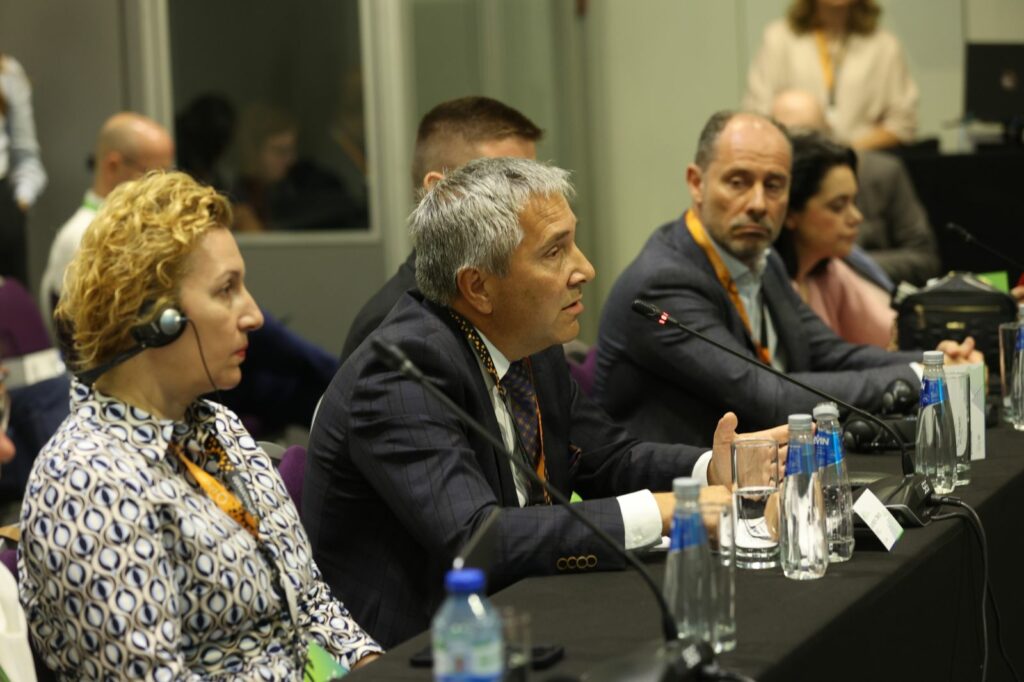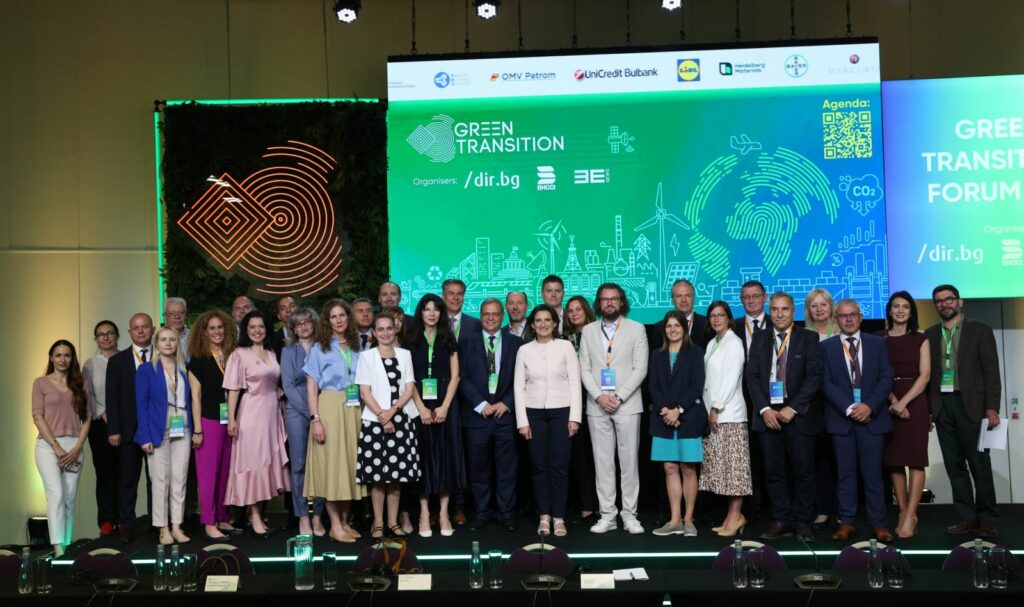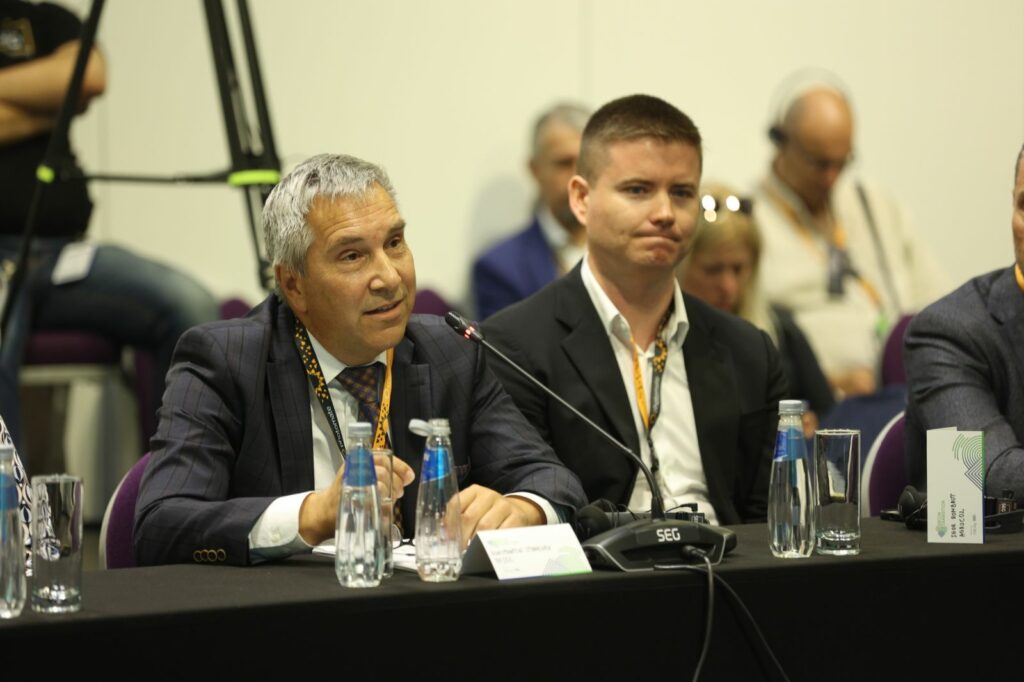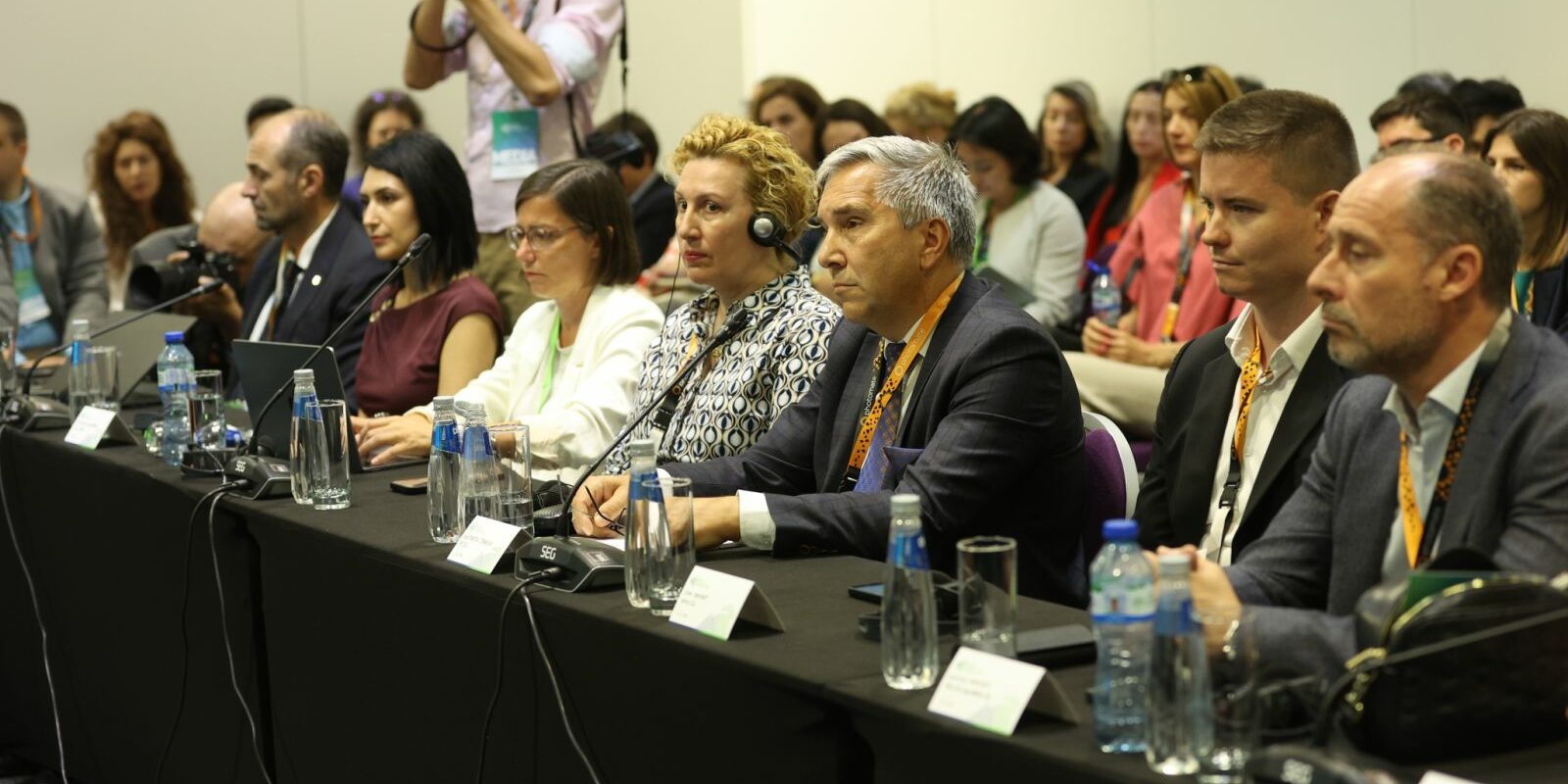Between 16th and 20th June 2025 Sofia was the EU capital of sustainability and green transition. The annual “Green Transition 5.0” forum, organized by dir.bg, transformed Sofia into a brain trust and a decision making nerve centre not only for South and East Europe, but for the EU itself.
“Green Transition 5.0” was high-class, high level event with keynotes by Teresa Ribera, First Executive Vice-President of the European Commission for Clean, Just and Competitive Transition and Enrico Letta, President of the “Jacques Delors” Institute. Ms. Ribera and Mr. Letta also participated into dedicated discussions with Bulgarian industrialists and opinion leaders. During the event the winner of the Nobel Prize in Economics for 2024 prof. Daron Acemoglu gave public lecture.

The high-level participation was completed by Ms. Roxana Mînzatu, Vice-President of the European Commission and Commissioner for Social Rights and Skills, Quality Jobs and Preparedness, ministers, industrialists, experts, and opinion leaders. During the five days of the conference all the topics of the green transition were discussed – from energy to ecology, from competitiveness to just transition, from agriculture and re-industrialisation to social transformation, employment, and skills.
BFIEC, as the representative of the Bulgarian energy intensive industries, had the pleasure and privilege to be partner of “Green Transition 5.0”

Mr. Stamenov, the Chairman of the BFIEC Managing Board, took active participation during the meetings with Ms. Ribera and Mr. Letta pointing out challenges standing before the energy intensive industries – disadvantageous electricity price divergence, challenges to competitiveness, high investment needs for decarbonisation, the need to apply non-mature enough technologies, carbon leakage, etc. Mr. Stamenov presented to Ms. Ribera decarbonisation roadmap for Bulgarian energy intensive industry.
The feedback from Ms. Ribera was optimistic, with understanding and concern for the industry in Bulgaria and the EU, and with commitment to supporting the industry’s competitiveness during the transition to net zero economy.







